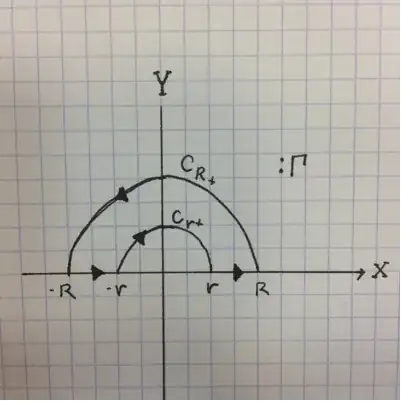$$\int_{0}^{+\infty}\frac{\sin x}{x}dx$$
My start:
Zero is a singular point, Let's define $g(z):=(e^{iz})\big/z$
$$\int_{\Gamma}\frac{e^{iz}}{z}dz=\\ \int_{-R}^{-r}\frac{e^{ix}}{x}dx+\int_{C_r^+}\frac{e^{iz}}{z}dz+\int_{r}^{R}\frac{e^{ix}}{x}dx+\int_{C_R^+}\frac{e^{iz}}{z}dz$$
$$=\int_{r}^{R}\frac{e^{ix}-e^{-ix}}{x}dx+\int_{C_r^+}\frac{e^{iz}}{z}dz+\int_{C_R^+}\frac{e^{iz}}{z}dz$$
from here I'm stuck the final answer should be $\pi /2$
$$(*)\lim\limits_{r\to 0}\int_{C_r^+}\frac{e^{iz}}{z}dz$$
$$(**)\lim\limits_{R\to 0}\int_{C_r^+}\frac{e^{iz}}{z}dz$$
